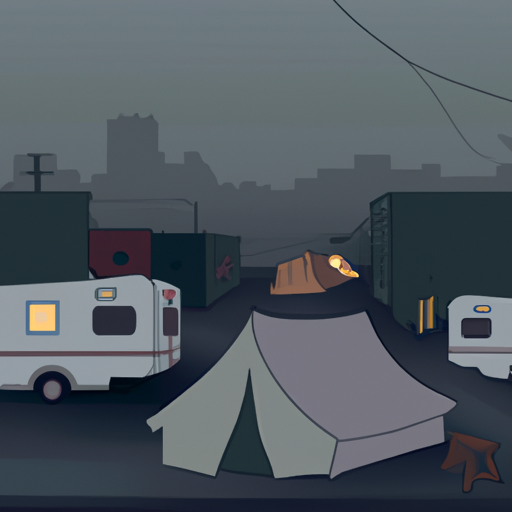Unmasking the Canadian Opioid Crisis: A Class Action Lawsuit and Tent Cities
One does not have to look far to find reports on the devastating effects of the Canadian opioid crisis. Newspapers, broadcast news and social media channels are filled with heart-wrenching stories of loss and despair, coupled with the astronomical financial cost that the opioid crisis places on our communities and healthcare systems.
The Effects of the Opioid Crisis on the Canadian Population
More than just numbers and statistics, the very fabric of Canadian society is being torn apart by the opioid crisis. Lives are being lost, families are being shattered, and neighborhoods are witnessing an escalating crime rate and an increase in homelessness. The opioid crisis does not discriminate based on economics, geography, or demographics. It reaches all facets of our society, illustrating the urgency and the importance of this issue.
On the Streets: Disintegrated Lives and Increased Crime
The intersection of opioids, homelessness and crime is a potent mix that poses serious challenges for urban planners, law enforcement and social service providers. Encampments of homeless men and women have sprung up in cities across Canada, bringing with them a surge in crime, drug use and a sobering reminder of the toll that the opioid crisis is having on the most vulnerable members of society. With the continued availability of low-cost street drugs combined with the high power of opioids, these encampments serve as a parable of the depths of despair that opioid addiction can lead to.
The Healthcare Burden: Surging Overdoses and Naloxone
Our healthcare system faces an increasing burden with the rising number of opioid overdoses. Emergency room visits and hospital admissions related to opioids have skyrocketed, placing a strain on resources and personnel. One particular response to this crisis has been the widespread distribution of Naloxone, a medication that reverses the effects of an opioid overdose. This simple yet powerful tool has likely saved countless lives, yet it remains a stopgap measure in the grand scheme of the issue.
An Unprecedented Class Action Lawsuit
In a remarkable development, numerous Canadian provinces have joined together in a class action lawsuit against opioid manufacturers and distributors. Seizing upon a similar tactic used against Big Tobacco in previous years, the provinces seek to recoup billions of dollars spent in healthcare costs related to the opioid crisis. This lawsuit represents a novel approach and signals a united front among provinces in addressing the core source of the opioid crisis.
The Main Points of Discussion
Below are some key takeaways from the discussed article:
- The opioid crisis is having a devastating impact on Canadian society, resulting in surges in homelessness, crime, and healthcare costs.
- Opioid addiction has led to the proliferation of tent cities and an increase in crime rates.
- The healthcare system is responding by increasing the distribution of Naloxone, a life-saving medication for opioid overdoses.
- Several Canadian provinces are uniting for a class action lawsuit against opioid manufacturers and distributors in an attempt to recover some of the healthcare costs related to the crisis.
The Path Forward
Tackling the opioid crisis requires a comprehensive solution that addresses not only the acute issues of homelessness and crime, but also the root causes, including economic disparity, mental health issues, and the role that pharmaceutical companies play in producing and distributing these highly addictive substances. By confronting them head-on and persistently pursuing justice in the courtroom, we are honoring the lives lost to opioids and taking a significant step towards healing our communities.
Final Thoughts
The opioid crisis in Canada continues to manifest in heartbreaking ways in our communities, leaving a trail of shattered lives, homelessness, and escalating crime rates. While the deployment of Naloxone offers some immediate aid, it is clear that more profound, systemic actions, such as the ongoing opioid class action lawsuit, are essential. We, as a society, must channel our collective efforts into fighting against this crisis urgently and proactively, for the well-being of our communities and our future generations.
